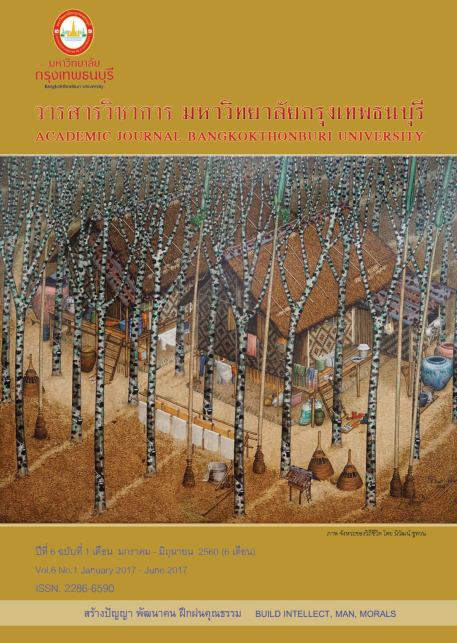Effects of Causal Factors on Prosocial Behavior of Private Vocational Students in Bangkok
Main Article Content
Abstract
This research was to develop the causal model of prosocial behavior of the privatevocational students in Bangkok with the following objectives : 1) To study the characteristics of prosocial behavior of theprivate vocational students in Bangkok. 2) To examine the validity of the model of prosocial behavior of theprivate vocational students in Bangkok, and 3) To study the effects of causal factors on prosocial behavior of the privatevocational students in Bangkok. The total sample size of 902private vocational students inacademic year2016 was selected by using the multi-stage sampling method. The research instrument to collect data was the inventory of the causal factors on prosocial behavior of private vocational students with .96 reliability.The statistics used for analyzing the data were means, percentages, standard deviations, Pearson correlation coefficients and the analysis of causal relationships by Structural Equation Modeling.
The research findings were 1) Prosocial behavior of theprivate vocational students in Bangkok comprised helping, sharing, charity, cooperation and norm observing 2) The validation of the causal model, considering from the statistically insignificant chi-square value and the absolute fit index with 2 = 45.00, df=34, p=.10, GFI=.99, AGFI=.98, RMSEA=.01, SRMR=.01 and the comparative fit index with CFI=1.00, indicated that the model was fit to the empirical data. 3) The highest direct effect of the causal factors on prosocial behavior of theprivate vocational students was Collectivism with the value of .29. The next lower direct effects were Principlism, Altruism , and Egoism with the direct effect values of .28, .22 and .16 respectively. From the predicted coefficient, the research wasfound that all four causal factors could explain 62 percentage of prosocial behavior of theprivate vocational students (R2=.62).


